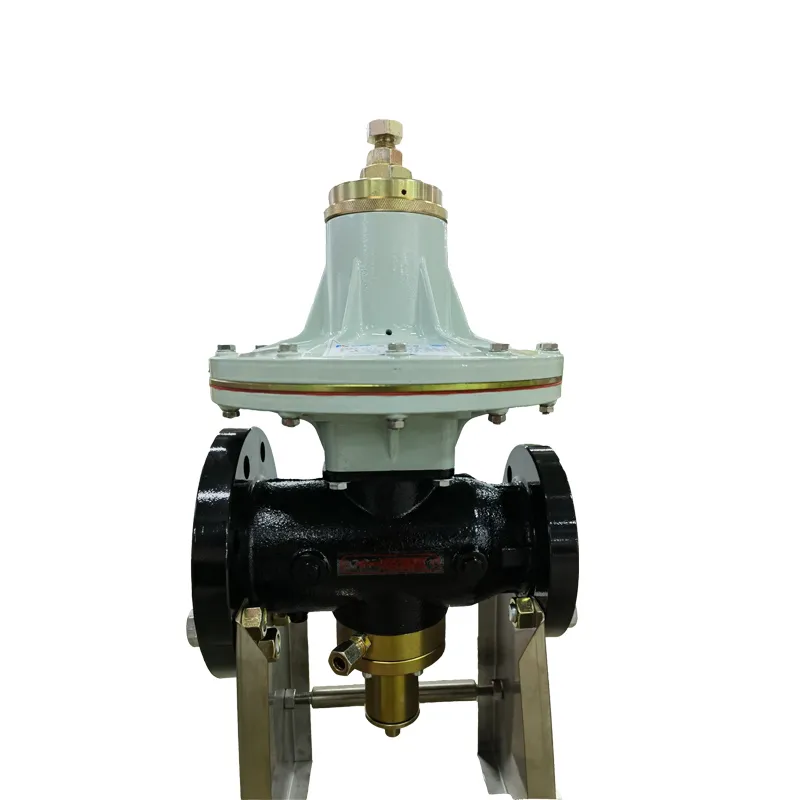
Nov . 10, 2024 17:56
Back to list
Introducing Electric Valve Technology for Enhanced Performance and Efficiency
Understanding Electrical Valves A Key Component in Modern Automation
In today’s world, where automation and control systems have become integral to various industries, electrical valves play a crucial role in managing fluid and gas flow. Often referred to as control valves, these devices can significantly enhance the efficiency of systems ranging from residential heating to complex industrial processes.
What Is an Electrical Valve?
An electrical valve is an electromechanical device used to regulate the flow of fluids or gases within a system. It operates by opening, closing, or partially obstructing passageways to control the movement of these substances. Electrical valves can be classified into several types based on their operation, including solenoid valves, motor-operated valves, and proportional valves. Each type serves unique functions based on the requirements of specific applications.
Types of Electrical Valves
1. Solenoid Valves These valves are perhaps the most common type of electrical valve. They use an electromagnetic solenoid to open and close the valve. When the solenoid is energized, it creates a magnetic field that pulls a plunger, allowing fluid to flow through the valve or stopping it. Solenoid valves are widely used in various applications, including irrigation systems, car wash systems, and even in home appliances.
2. Motor-Operated Valves (MOVs) Motor-operated valves use electric motors to control the position of the valve. They are typically used in large systems where a robust method of control is required. MOVs can offer precise control over flow rates and are commonly found in water treatment plants, oil and gas industries, and heating systems.
.
Applications of Electrical Valves
صمام كهربائي

Electrical valves find applications across a wide range of industries. In the manufacturing sector, they are essential for automating processes, efficiently managing resources, and ensuring the safety of operations. In the automotive industry, solenoid valves control fuel delivery and emissions, making them key players in improving engine efficiency and meeting environmental regulations.
Moreover, in HVAC systems, electrical valves regulate air and fluid flow, thereby optimizing heating and cooling processes to improve energy efficiency. In the food and beverage industry, sanitary valves control the flow of liquids while maintaining stringent hygiene standards.
Advantages of Electrical Valves
One of the principal advantages of electrical valves is their ability to be integrated into automated systems. They can be operated remotely or programmed to work at specific times or in response to particular conditions, minimizing the need for manual intervention. This feature not only saves labor costs but also enhances safety by reducing human error in critical applications.
Another significant benefit is the precision that electrical valves offer. Unlike manual valves, which can be subject to human error or mechanical wear, electrical valves provide reliable and repeatable performance. This reliability is crucial in applications where consistent flow rates are necessary for quality control.
Challenges and Considerations
Despite their many advantages, electrical valves also present certain challenges. They require a reliable power source, and any interruption in power can lead to operational failures. Additionally, the initial investment in electrical valves can be higher than traditional manual valves, although the long-term savings in maintenance and efficiency often justify this cost.
Conclusion
Electrical valves are indispensable components in modern automation and control systems. Their ability to efficiently regulate fluid and gas flow can enhance operational efficiency, safety, and precision across various industries. As technology continues to advance, the importance and functionality of electrical valves will only increase, driving innovation in automation and process control. Whether in industrial applications or everyday appliances, understanding and utilizing electrical valves effectively is key to maximizing performance in today’s fast-paced technological environment.
Latest news
-
Safety Valve Spring-Loaded Design Overpressure ProtectionNewsJul.25,2025
-
Precision Voltage Regulator AC5 Accuracy Grade PerformanceNewsJul.25,2025
-
Natural Gas Pressure Regulating Skid Industrial Pipeline ApplicationsNewsJul.25,2025
-
Natural Gas Filter Stainless Steel Mesh Element DesignNewsJul.25,2025
-
Gas Pressure Regulator Valve Direct-Acting Spring-Loaded DesignNewsJul.25,2025
-
Decompression Equipment Multi-Stage Heat Exchange System DesignNewsJul.25,2025

